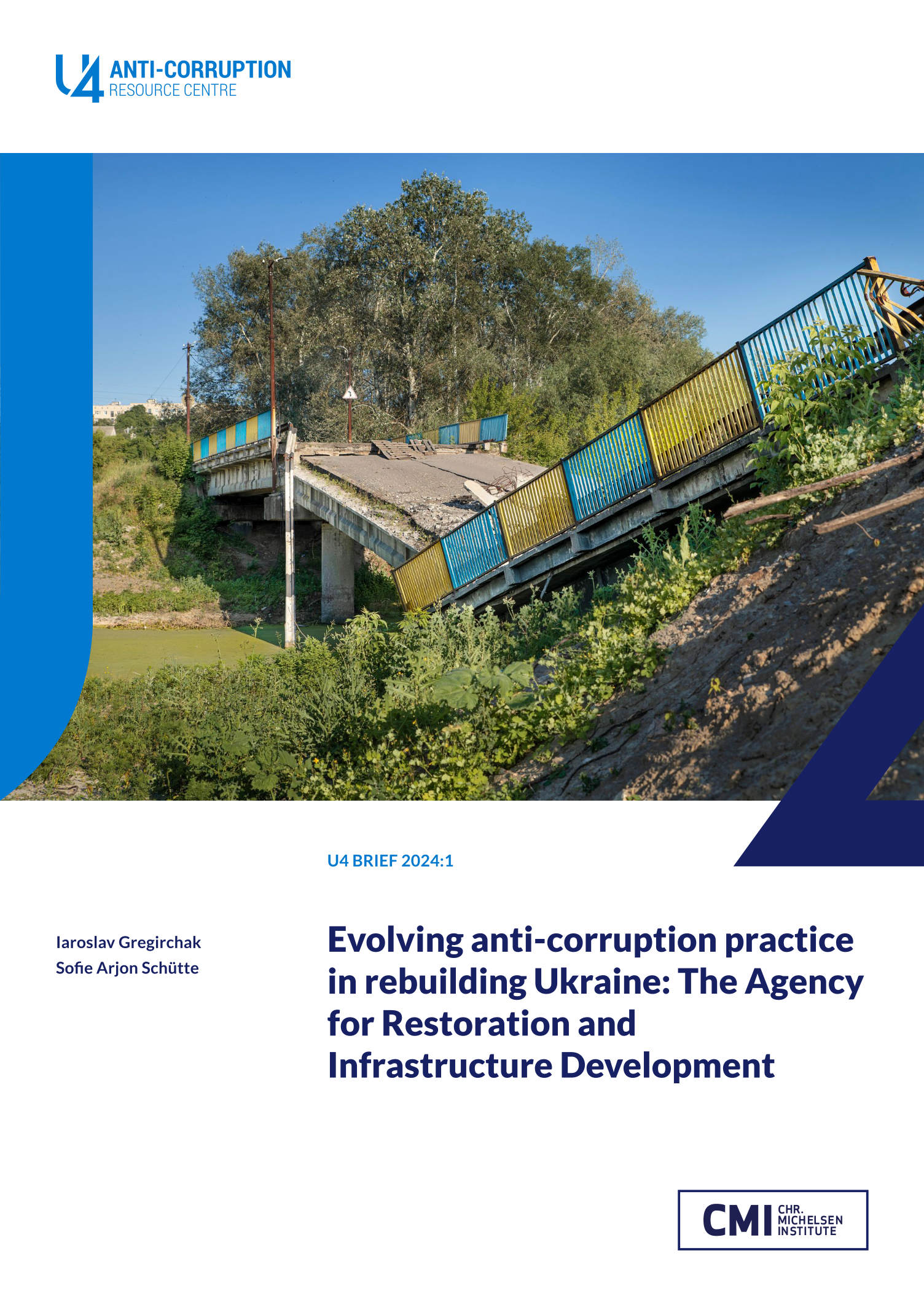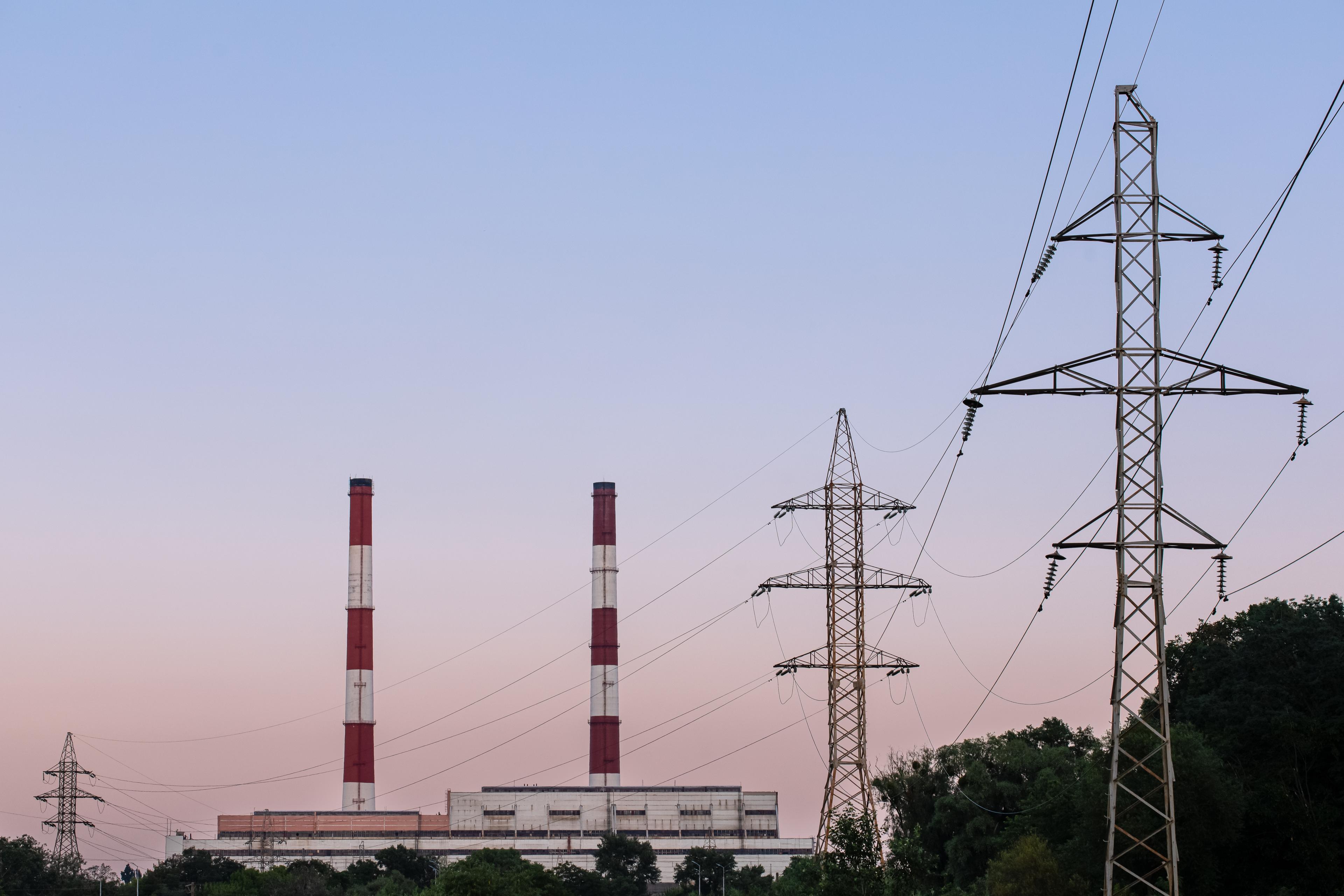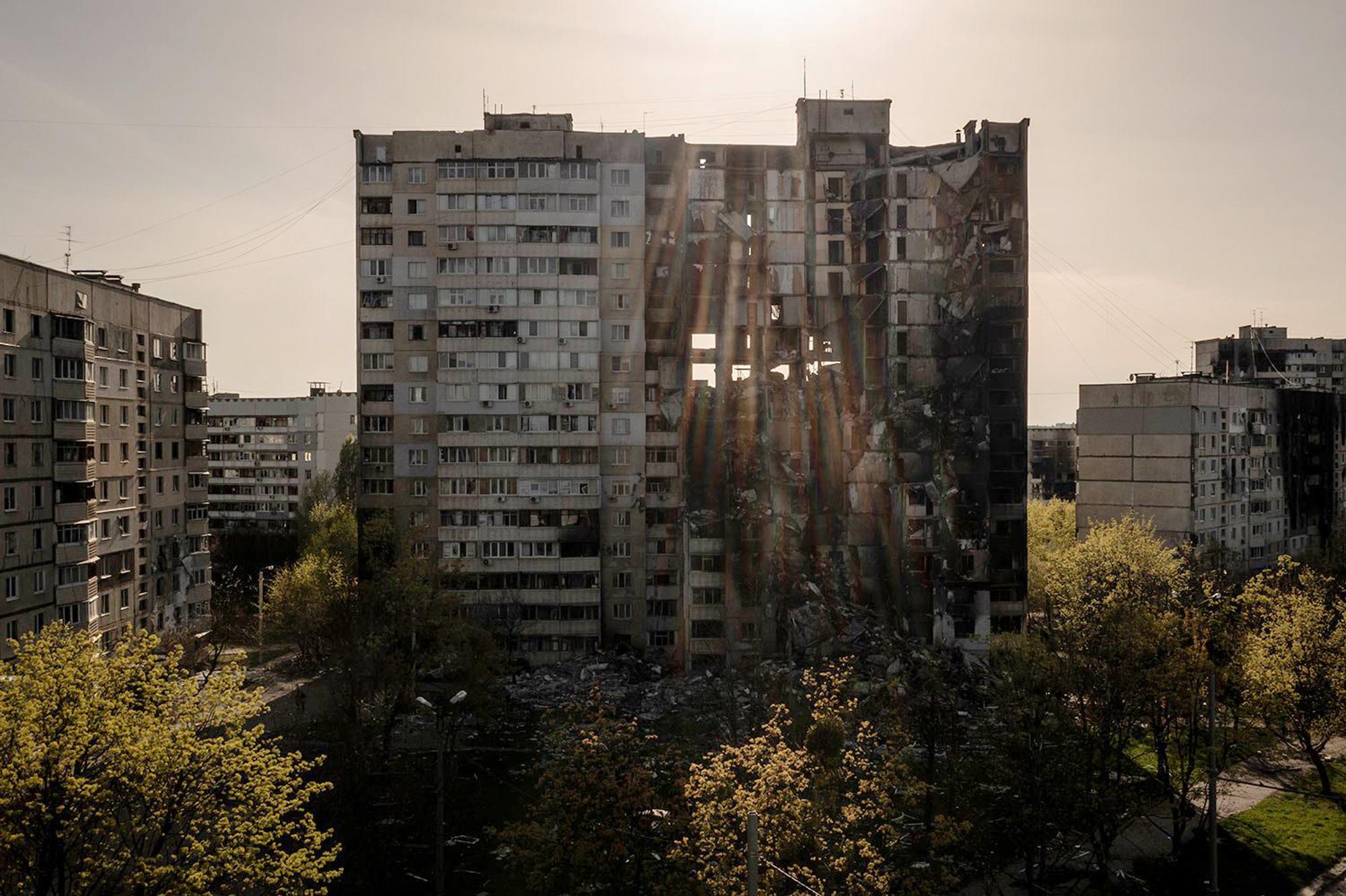Main points
- In early 2023 the State Road Agency (Ukravtodor) and the State Agency for Infrastructure Projects (Ukrinfraproyekt) were merged into the Agency for Restoration and Infrastructure Development (the Agency) under new leadership. The Agency is responsible for rebuilding critical infrastructure and housing destroyed or damaged across Ukraine.
- The construction sector in general and the predecessors of the Agency have a poor track record when it comes to corruption. Hence, in 2023, special attention was given to assessing risks and developing anti-corruption programmes for the Agency and its regional branches.
- In addition to being tasked with 12 specific measures under the State Anti-Corruption Programme 2023–2025, the Agency developed its own anti-corruption programme.
- A memorandum of understanding between the Agency and the National Anti-Corruption Bureau has already been put to (a successful!) test when the head of the Agency blew the whistle on a bribery attempt in November 2023.
- The civil society organisation (CSO) coalition RISE plays an important role in developing the tools to allow for transparency and oversight of reconstruction activities. As part of the Transparency and Accountability Council that the Agency set up as early as April 2023 to obtain critical advice, CSOs were involved in the development of its anti-corruption programme and continue to play a role in the recruitment of new regional unit heads.
- The collaboration with CSOs and anti-corruption agencies has been crucial for the Agency in developing its new anti-corruption programme and will continue to be important while internal capacity and policies are being strengthened throughout its units. Some recommend a law to clarify and strengthen the legal and operational framework of the new Agency.



